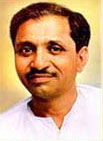

 |  |
 The fourth general elections to the Lok Sabha and the state assemblies, held in February 1967, had a radical impact on Indian politics. The fourth general elections to the Lok Sabha and the state assemblies, held in February 1967, had a radical impact on Indian politics. The Congress party had exhausted its mandate and lost its character and motivation as a party of social and institutional change. There was large-scale disenchantment, especially with its top leaders, because of corruption and the lavish lifestyle of many of them. Many of the regional and local Congress bosses were perceived by the people as being devoted to loaves and fishes of office, political wheeling dealing and factional infighting. At the same time people felt frustrated because there was no other party which could replace Congress. There was, however, a great political awakening among the people; in 1967 the turnout of the eligible voters was, at 61.1 per cent, the highest witnessed so far. An important feature of the 1967 elections was the coming together of the opposition parties; some of them formed anti-Congress fronts in some states. In other cases, they entered into a series of electoral adjustments by sharing seats and avoiding contests. But the coalescing parties were in almost all cases ideologically and programmatically disparate, their only cement, being the desire to defeat Congress. The election results were dramatic and Congress suffered a serious setback. Though it succeeded in retaining control of the Lok Sabha—it won 284 out of 520 seats—its majority was drastically reduced from 228 in 1962 to 48. Congress also lost its majority in the assemblies of eight states—Bihar, U.P., Rajasthan, Punjab, West Bengal, Orissa, Madras and Kerala. Jan Sangh emerged as the main opposition party in U.P., Madhya Pradesh and Haryana, Swatantra in Orissa, Rajasthan, Andhra Pradesh and Gujarat, SSP in Bihar, and the Communists in West Bengal and Kerala. |
Copyright ©2000 indiansaga.info. All rights reserved.
By using this service, you accept that you won't copy or use the data given in this website for any commercial purpose.
The material on indiansaga.info is for informational & educational purpose only.
This site is best viewed at 800 X 600 picture resolution.